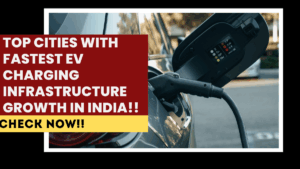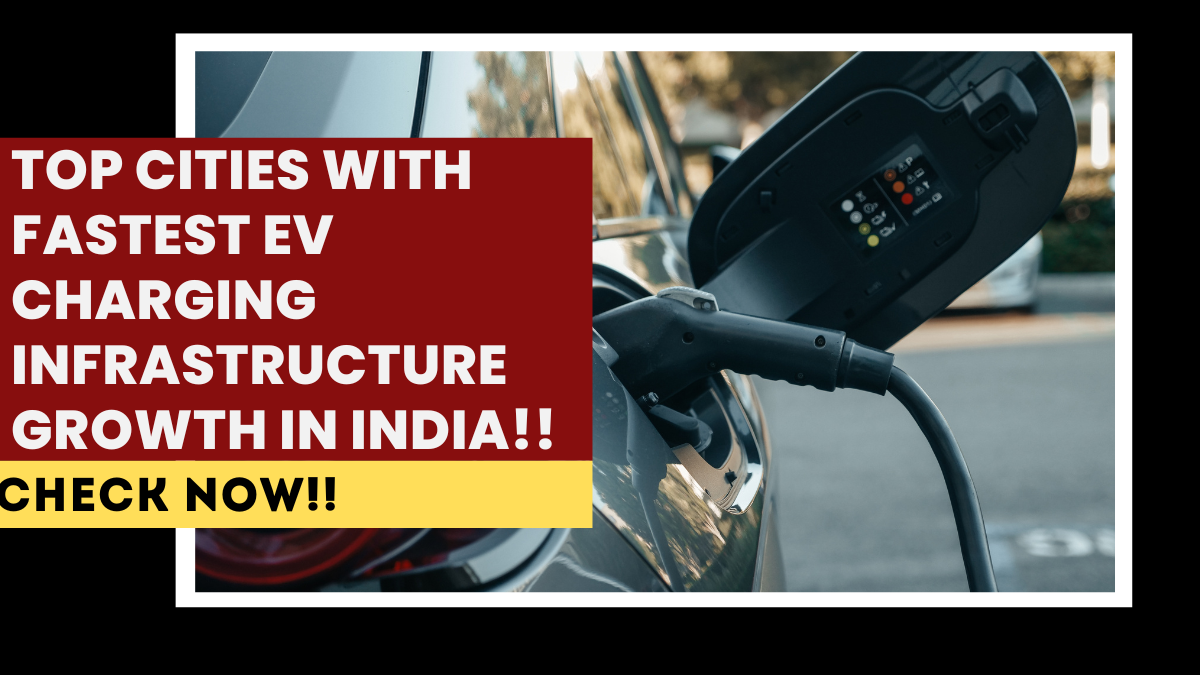India’s electric vehicle revolution is accelerating in 2025, supported by government subsidies, private investments, and rising consumer demand. A crucial factor behind this growth is the rapid expansion of electric car charging stations across the country. As EV adoption increases, cities are competing to build robust charging networks that ensure convenience and confidence for users. The top cities with fastest EV infra growth in 2025 showcase how urban India is preparing for a sustainable mobility future.

EV Charging Infrastructure in India 2025 – An Overview
In 2025, India has crossed the milestone of 20,000+ public EV charging stations, compared to fewer than 1,500 in 2020. This growth is driven by:
-
Government initiatives: Under FAME III and state EV policies.
-
Private partnerships: Companies like Tata Power, ChargeZone, Statiq, and Adani building large networks.
-
High EV sales: Cities with growing EV penetration naturally attract more chargers.
-
Technological upgrades: Faster DC charging and solar-powered stations are now common.
Top Cities with Fastest EV Charging Network Growth in 2025
1. Delhi NCR
-
Why Leading: Delhi has been at the forefront of EV adoption due to strict pollution control norms.
-
Current Status: Over 3,500 charging points, including fast chargers at metro stations, malls, and residential complexes.
-
Highlights: Subsidies for home chargers, partnership with Tata Power and BSES for public chargers.
2. Mumbai Metropolitan Region
-
Why Leading: Maharashtra’s strong EV policy and corporate hubs boost infrastructure.
-
Current Status: Around 2,800 charging stations as of September 2025.
-
Highlights: BEST buses fully electrified, charging hubs along highways, solar-based fast charging pilots.
3. Bengaluru
-
Why Leading: Known as India’s tech capital, Bengaluru is also an EV hotspot.
-
Current Status: More than 2,500 public chargers installed.
-
Highlights: EV corridors on Outer Ring Road, integration with smart apps for availability tracking.
4. Hyderabad
-
Why Leading: Telangana’s aggressive EV push attracts startups and global investors.
-
Current Status: About 2,000 charging stations across the city.
-
Highlights: Hyderabad Metro Park & Charge facilities, charging hubs at IT corridors.
5. Pune
-
Why Leading: Industrial hub with strong EV manufacturing base.
-
Current Status: Nearly 1,800 chargers in and around the city.
-
Highlights: Dedicated EV charging stations in residential societies and commercial parks.
6. Chennai
-
Why Leading: Strong automobile industry base and Tamil Nadu EV policy.
-
Current Status: Around 1,600 chargers including highway corridors.
-
Highlights: Focus on EV taxis and last-mile delivery networks.
7. Ahmedabad
-
Why Leading: Gujarat state subsidies drive adoption.
-
Current Status: More than 1,200 chargers across the city.
-
Highlights: Solar-powered chargers and fast-charging lanes on key highways.
Upcoming EV Charging Hubs Beyond Metros
-
Jaipur: Adding 500+ chargers under Rajasthan EV policy.
-
Lucknow: Focus on electrifying commercial fleets.
-
Kochi: Smart charging points integrated with renewable energy.
-
Nagpur: Pioneer in EV buses, now expanding private EV charging stations.
Benefits of Growing EV Charging Networks
-
Convenience for Users: Reduces range anxiety, encouraging more EV buyers.
-
Boost to EV Sales: Better infrastructure increases confidence.
-
Economic Opportunities: Charging hubs create new jobs and revenue models.
-
Cleaner Environment: Expanding infrastructure reduces dependence on fossil fuels.
Challenges Still Faced in 2025
-
Uneven Growth: Metro cities dominate while Tier-2 towns still lack sufficient chargers.
-
Grid Load: High demand from fast chargers puts pressure on local electricity grids.
-
Standardization Issues: Different charging connectors create compatibility problems.
-
High Costs: Land and installation remain expensive, especially in dense urban areas.
Future Outlook
By the end of 2025, India aims to cross 30,000+ public charging stations, making EVs more mainstream. Highway corridors will feature superfast charging points at every 50 km, ensuring intercity EV travel becomes seamless. With the entry of global companies and startups innovating in battery swapping and wireless charging, the next phase of India’s EV journey looks promising.
FAQs
Which city has the highest number of EV charging stations in 2025?
Delhi NCR leads with over 3,500 public charging stations.
Are charging stations available on highways in 2025?
Yes, major highways between Delhi-Mumbai, Bengaluru-Hyderabad, and Chennai-Pune now have fast-charging corridors.
Do EV owners get subsidies for installing home chargers?
Yes, many state governments, including Delhi and Maharashtra, provide subsidies for residential EV chargers.
Which Tier-2 cities are growing fastest in EV infrastructure?
Jaipur, Lucknow, Kochi, and Nagpur are emerging hubs with significant EV charging expansions in 2025.
What type of charging is most common in India?
AC slow charging is most common, but DC fast charging is expanding rapidly in metro cities and highways.
Click here to know more.
